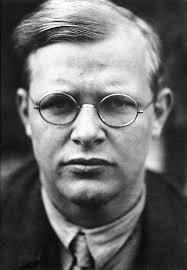
Clemency and moderating anger. Perkins describes the virtue of clemency as one that, “serves to moderate wrath and revenge.”[1] Clemency first addresses how a person is, “to carry himself in respect of injuries and offences done unto him.”[2] Perkins in giving counsel on this issue recognizes three categories of offenses: light offenses that only cause displeasure, an offense that causes small injuries, and finally offenses that cause great injury.[3] Concerning offenses that only cause displeasure Perkins states, “when small offences are done, which cannot be avoided, then in discretion a man should withhold his anger, and not take notice of them, but pass by them and let them go.”[4] For offenses that cause small injury, Perkins states that the correct course of action is “to take notice of these, but withal to forgive them and put them up.”[5] The last category of injury requires the greatest act of clemency. Perkins states concerning offenses that cause great injuries three aspects are called for, “(1) in taking notice; (2) in forgiving them; [and] (3) in a just and lawful defending [of] ourselves against the wronging parties.”[6]
Perkins gives the greatest attention to the issue of defending oneself in his treatment of the virtue of clemency. Perkins first addresses that it is appropriate for believers to avail themselves of legal protection from injury. Perkins states, “A man may, with good conscience, defend himself against great injuries by the benefit of the law.”[7] Perkins answers several objections to the understanding that believers have the right to avail themselves of the law to defend against injury. Perkins responds to the challenge that such conduct is contrary to Christ’s teachings found in the Sermon on the Mount. Perkins states that Christ’s teaching, “speaks of private persons who want the defense and assistance of the public magistrate. And such must suffer wrong upon wrong, blow upon blow, and loss upon loss, rather than right their own wrongs by revenging themselves.”[8]
Perkins, in answering the objection that turning to the law violates Paul’s commands regarding lawsuits in 1 Corinthians, notes that Paul is condemning the way the Corinthians brought small manners to unbelieving judges and tarnished the gospel.[9] To the objection that it is the will of God that a person is wronged Perkins answers with the following syllogism, “It is God’s will we should have diseases, and yet it is no less His will that we should use good means to be cured of them. So, it is in wrongs and injuries done to us.”[10] With objections addressed Perkins proceeds to address how an individual might defend themselves using the law. Perkins encourages that clemency is to be applied before seeking to use the law for defense. Perkins states, “we must try all means, and use all remedies that may be, before we use the remedy of law.”[11] Three factors should contribute to moderation before using the law according to Perkins: every injury occurs according to the providence of God, that the courts are ordained by God and in going to them we yield our rights to God, that our primary pursuit in seeking justice must be God’s glory.[12] Bearing all three in mind if the believer does use legal means Perkins states:
After the suit is ended, the moderation of our minds must be expressed by our behavior in regard of the event of our action. For in the law goes with us, we are to give God thanks for the manifestation of His justice in the course take. If, on the other side, it goes against us, we may not rage or be discontentedly grieved, but commend our cause quietly to God, and accuse ourselves for our own sins, and say with David, “Righteous thou art, O Lord, and just are thy judgments (Ps. 119:37).[13]
Clemency and trust of God are to mark the believer both before and after availing themselves of the law.
Perkins after addressing the use of the law to address injury and wrongs proceeds to address the place of self-dense and the use of force in the life of a believer. Perkins does not believe that there is a blanket right to self-defense stating, “In some cases he may lawfully defend himself by force.”[14] With this understanding that there is a limit to legitimate self-defense Perkins proceeds to describe the limits. Perkins gives three criteria that must be met for self-defense to be legitimate: sudden, inescapable, and unavoidable violence, violence that is so clear that the only means of escape are through retaliation or killing, and violence that occurs when the lawful authority is not present or can not be safely availed of.[15] Perkins further elaborates that the justness of self-defense hinges upon three things: that it is involuntary, that the purpose must be to defend and not seek revenge, and that the weapons used be proportionate.[16] Following this Perkins turns his attention to condemn the practice of trial by combat. Perkins thoroughly condemns this practice despite its antiquity stating, “this way of defense, however ancient it may be, is utterly unlawful”[17] In doing so Perkins was not looking to condemn ancient practices that had ceased to exist but those which were an ongoing reality. One author speaks to this reality, “The civil law justified a trial by combat in certain cases; much more so did the English law. It was confirmed by long custom and act of Parliament.”[18] Perkins argues that such a practice, though legal and accepted, violated the biblical command not to kill.[19]
[1] Perkins, Works, 8:371.
[2] Perkins, Works, 8:371.
[3] Perkins, Works, 8:371-371.
[4] Perkins, Works, 8:371.
[5] Perkins, Works, 8:371.
[6] Perkins, Works, 8:372.
[7] Perkins, Works, 8:373.
[8] Perkins, Works, 8:373.
[9] Perkins, Works, 8:373.
[10] Perkins, Works, 8:374.
[11] Perkins, Works, 8:373.
[12] Perkins, Works, 8:375.
[13] Perkins, Works, 8:374-375.
[14] Perkins, Works, 8:375.
[15] Perkins, Works, 8:376.
[16] Perkins, Works, 8:376.
[17] Perkins, Works, 8:377.
[18] Markku Peltonen, The Duel in Early Modern England: Civility, Politeness and Honour (Cambridge: Cambridge University Press, 2003), 194.
[19] Perkins, Works, 8:377.




